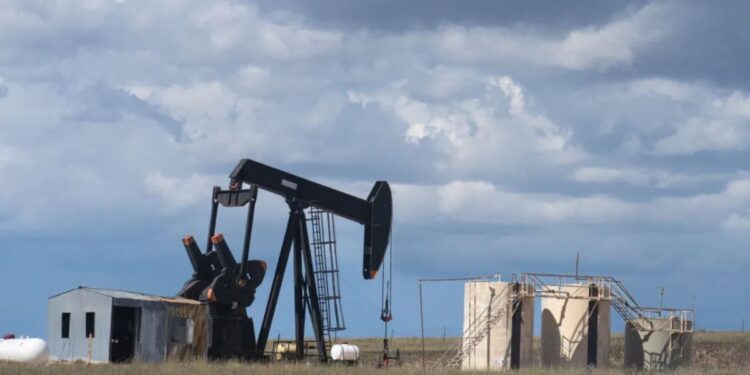The United States holds the distinction of being the world’s largest oil producer, with an impressive record of pumping out 12.9 million barrels per day in 2023.
This marks a major achievement for the American economy, although it’s not something you’ll hear Joe Biden boasting about. The reason behind his silence is evident – election-year politics. Highlighting the record-breaking oil production in the U.S. would potentially alienate one of President Biden’s key supporters, the climate lobby.
The president’s silence on the matter can be attributed to another reason. He is well aware that he cannot take any credit for the impressive production records. Over the course of three years, he has consistently targeted the pillars of affordable, available, and reliable American energy.
The credit for making the U.S. energy independent in 2019 – a feat that hadn’t been accomplished in 70 years – belongs to the hardworking and risk-taking innovators, entrepreneurs, and roughnecks, particularly in places like my home state of Wyoming. These individuals, through their vision and labor, have played a crucial role in achieving this milestone.
Instead of celebrating their achievement, candidate Joe Biden made a threat to eliminate their jobs. He made a strong promise that his administration would completely eradicate fossil fuel. Shortly after taking office, he took actions to halt the Keystone Pipeline and put an end to federal lease sales and existing leases. Additionally, he has initiated an unprecedented regulatory attack on the energy sources that currently account for four-fifths of the country’s energy supply.
Oil production is currently at its highest level, but there is potential for even greater output if it weren’t for the president’s efforts to discourage investment. Prior to President Biden taking office, the Energy Information Administration projected that oil output would reach 14 million barrels per day by 2023. However, the actual output fell short by 1.1 million barrels per day compared to the forecast.
In 2023, we witnessed a remarkable increase in oil production. This can be attributed to the fact that a significant portion of our oil and natural gas extraction now takes place on privately owned and state lands. The advantage of this is that developers no longer need permission from Washington to carry out drilling operations. In 2005, approximately 68 percent of our oil and 62 percent of our gas were sourced from such lands. However, these figures have since risen to around 75 percent for oil and 90 percent for gas. Interestingly, a majority of this production occurs in states governed by Republicans, including Wyoming.
Production on federal lands is currently sustained by wells drilled on leases issued prior to President Biden taking office. Although the administration has been issuing drilling permits to existing leaseholders, as mandated by law, there has been a noticeable delay in processing these permits. This situation signifies that our current production levels are only temporary and cannot be sustained in the long run.
The administration is significantly reducing the number of new leases being offered. Over the past two decades, the Department of the Interior has typically granted around 2,000 new leases covering approximately 2.3 million acres each year, regardless of the political party in power. However, in President Joe Biden’s first full fiscal year, the number of new leases dropped to just 120, covering a mere 75,000 acres. These figures represent a reduction of more than 90 percent compared to the previous 20-year average. Early data for FY2023 suggests that there has been little improvement in this trend.
The Biden administration has been widely reported to have leased the fewest acres for onshore drilling since the end of World War II. Additionally, it aims to limit future access to millions of acres through land designations that were never authorized by Congress.
The future doesn’t look any brighter for federal offshore areas, which contribute approximately 15 percent to U.S. oil production. In 2022, three offshore lease sales were canceled by the administration. Despite being mandated by Congress, the administration attempted to impose conditions that would render these sales economically unviable. Furthermore, a five-year leasing plan for 2025-2029 was issued, which includes the lowest number of lease sales ever recorded in history.
The president’s climate zealotry will be cemented by his ill-advised actions. This will inadvertently grant market leverage and geopolitical strength to OPEC and Russia. It is impossible for us to sustain, let alone expand, production in federal areas unless we revert back to the lease and acreage levels seen before Biden took office.
This is not just a case of incompetence, although there is certainly a fair share of that. It represents a deliberate ideological attempt to suppress American energy, along with the numerous jobs and income it brings forth.
The American oil production is currently booming. However, if President Biden continues to oppose it, our reliance on OPEC, Venezuela, Russia, and Iran for oil will increase in the future. It is important to note that the negative consequences of the president’s actions may not be immediately noticeable. In the long run, with fewer available leases, future administrations will have limited drilling permits for approval, resulting in a reduction in oil production.










